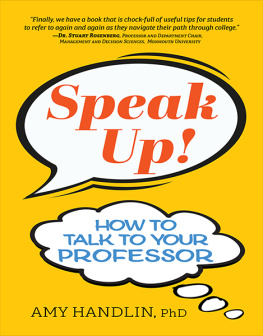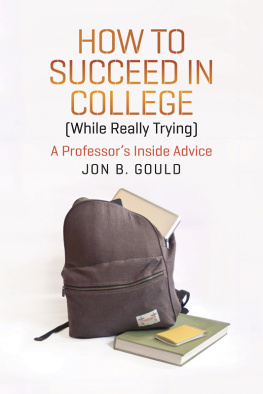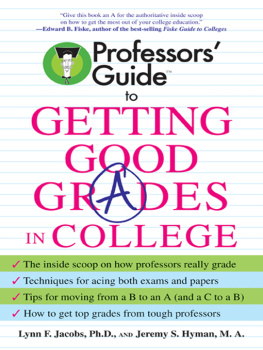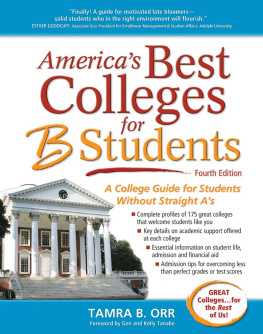TABLE OF CONTENTS
This publication is designed to provide accurate information in regard to the subject matter covered as of its publication date, with the understanding that knowledge and best practice constantly evolve. The publisher is not engaged in rendering medical, legal, accounting, or other professional service. If medical or legal advice or other expert assistance is required, the services of a competent professional should be sought. This publication is not intended for use in clinical practice or the delivery of medical care. To the fullest extent of the law, neither the Publisher nor the Editors assume any liability for any injury and/or damage to persons or property arising out of or related to any use of the material contained in this book.
2019 Kaplan, Inc.
Published by Kaplan Publishing, a division of Kaplan, Inc.
750 Third Avenue
New York, NY 10017
All rights reserved. The text of this publication, or any part thereof, may not be reproduced in any manner whatsoever without written permission from the publisher.
10 9 8 7 6 5 4 3 2 1
ISBN: 978-1-5062-5816-4
Introduction: Why You Need to Speak Up
W hether youre entering your first year of college or your last year of graduate school, you are more likely to get what you want from your educational experience if you know how to ask for it. In a nutshell, thats why you need to speak up. If you dont, you will end up settling for lessless learning, less help, less inspiration, and less satisfaction.
Need more reasons? An effective self-advocate is always taken more seriously, both by campus authorities and among her peers, than someone who complains only to her friendsor beats herself upwhen things dont go her way. More broadly, the better you learn this skill in college, the more persuasive and influential (and likely the more successful) you will be in your career and in your life.
You may need to seek help from a range of administrators and staff during your student years. For example, you might need resources from a financial aid office, guidance from a librarian, or support from a residential life counselor. The advice in this book is certainly applicable to these encounters, but for the most part the book focuses on professorsnot only because they are at the heart of a learning enterprise, but also because they have knowledge, experience, and contacts that can literally affect your whole future. As New York Times columnist Frank Bruni reminds freshmen, professors can be a bridge to other influential people inside and outside the school, to limited-space seminars, to special collaborations, to exclusive summer programs, to competitive internships, to graduate work and more. Youll never benefit from a professors rich array of offerings, however, if she doesnt know who you are, or if she gets the impression that you are unserious or self-righteous. She is most likely to become an invaluable ally and mentor if you speak up for yourself in a way that demonstrates your maturity and showcases your smarts. Thats the approach this book will teach you.
It can be intimidating to talk to a professor (particularly to challenge a grade or request a favor), especially the first couple of times you try. And no matter how effectively you ask for something, you might not get it. But the only sure way to fail at self-advocacy is not to do it at all. As long as you make a good-faith effort, it will feel increasingly comfortable and natural. As your confidence builds, so too will your rate of success.
During all your interactions, it is your responsibility to be well prepared and realistic. This theme will recur in different ways throughout the book. For now, recognize that even the most accessible and responsive professor cant give the right answer to the wrong question. He will not do things for you that are unfair to other students, unreasonable, or unethical. However, he will almost surely extend at least three basic courtesies: transparency about how he assesses your work, patience in listening to what you ask, and honesty in telling you whether, when, and in what way he intends to comply with your request. Those are three solid building blocks for a sustainable relationship.
How to Use This Book
The ideal way to read this book is, of course, cover to cover. That will give you the best chance to experience a-ha momentsunexpected insights or solutions to problems you didnt know you had. But like many students, you may feel too overwhelmed by coursework and other obligations to tackle all of this material at once. If thats the case, its much better to start now with just a few high-priority sections than to put off reading any of it indefinitely. It takes time to forge relationships with professors and other campus authorities, and you want to be ready to take advantage of opportunities that may present themselves today, tomorrow, or at any point during your academic career. You also want to avoid mistakes that can undermine your hard relationship-building work.
Since youve made it into college or graduate school, youre surely used to taking tests. It probably wont come as a surprise that this book begins by asking you to do some simple self-assessment. The idea isnt to measure your knowledge; its to guide you toward those parts of the book that are most likely to yield immediate benefits for you.
You will also find a measurement-of-knowledge quiz at the beginning of every chapter. These quizzes will help you recognize gaps in your understanding of the topic. Each chapter will conclude with the answers, enabling you to grade yourself on how much youve learned.
Assess Yourself
Indicate whether you agree or disagree with each of the following statements.
I am confident in my ability to create a relationship with a professor.
YesNo
I always send emails to my professors when I need to communicate with them outside of the classroom.
YesNo
Most of my professors would be likely to recognize me outside of the classroom.
YesNo
I respect my professors, but most of them are out of touch.
YesNo
It would be easier for me to write a good email to a professor or to start off a meeting correctly if I had some examples.
YesNo
Use Your Assessment
Question #1: If you answered No, you need to prioritize Chapters One and Three.
Question #2: If you answered Yes, start with Chapter Four.
Question #3: If you answered No, start with Chapter One.
Question #4: If you answered Yes, read Chapter Two.
Question #5: If you answered Yes, go straight to the samples in the Appendix.
Boxed Features
In addition to the quiz at the start of every chapter, youll notice three other boxes that call your attention to special features.
1. Raise Your Hand
Here youll find some common (and uncommon) student questions and answers, such as the following:
 Raise Your Hand
Raise Your Hand
Question: Why do I need to read a book about interacting with professors instead of just asking my friends how they do it?
Answer: By all means, ask your friends about their successes and failures. But by reading this book, youll also be able to tap into the collective wisdom (and warnings) of students and professors throughout the country.
2. From a Different Perspective












 Raise Your Hand
Raise Your Hand